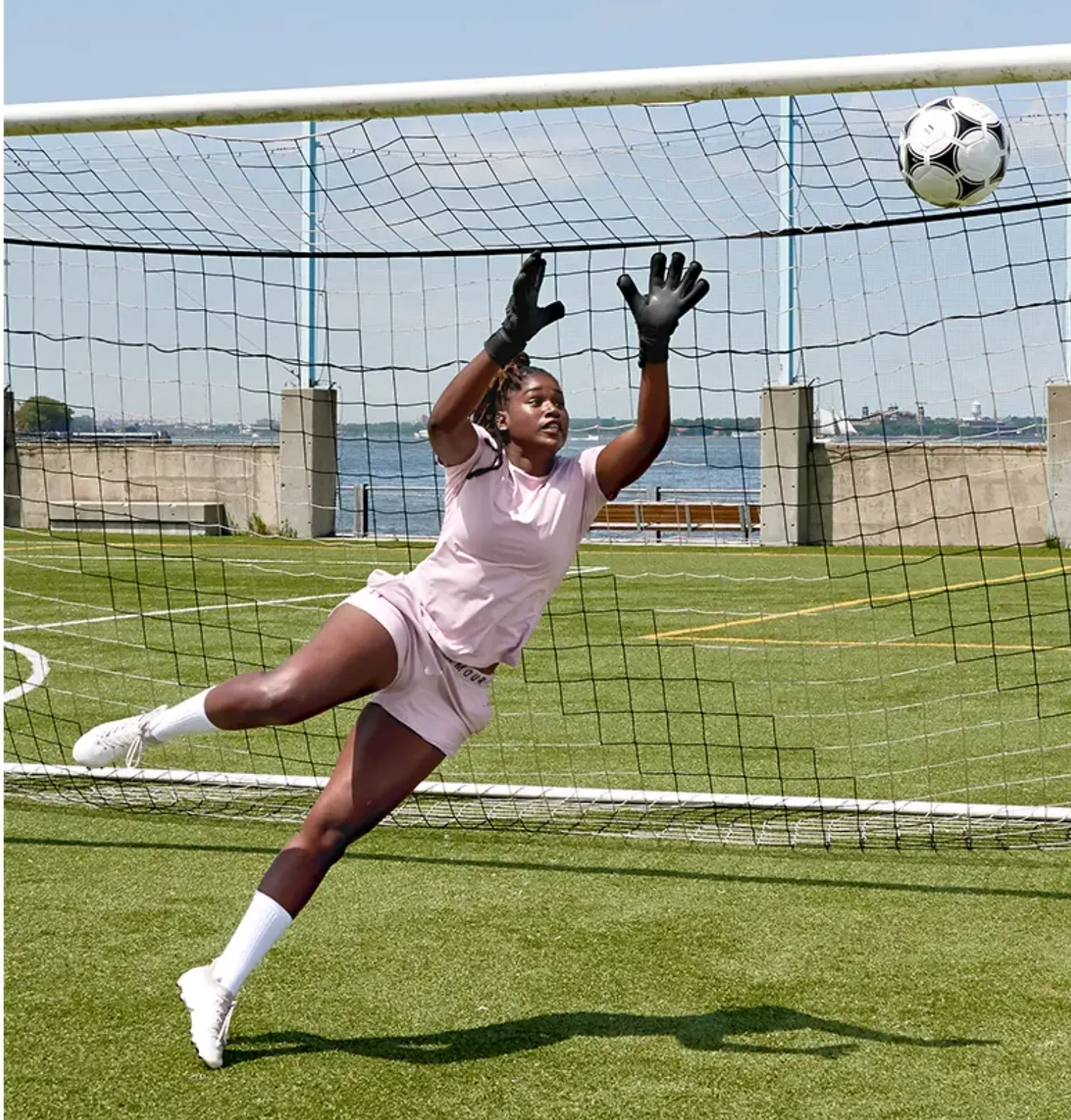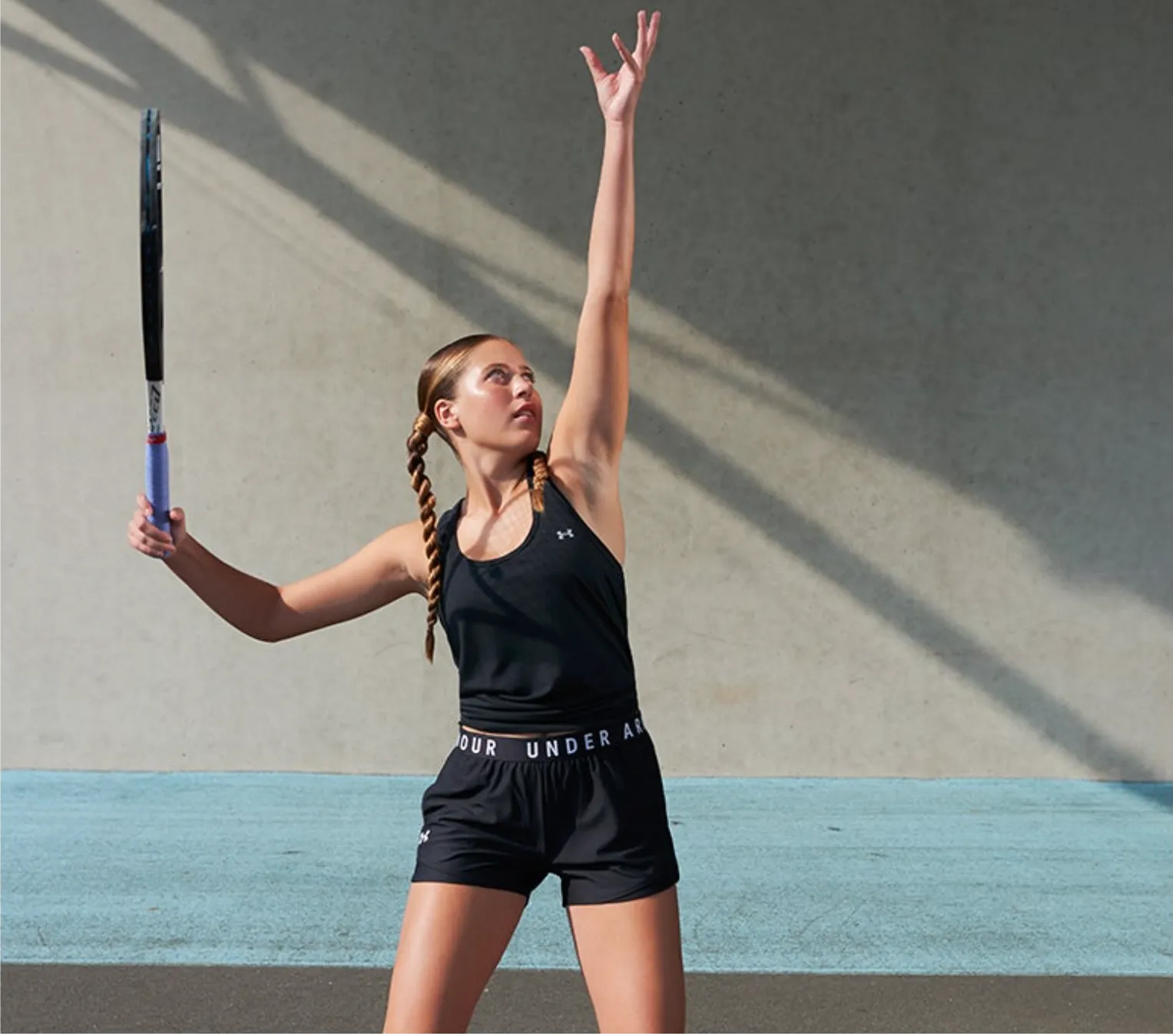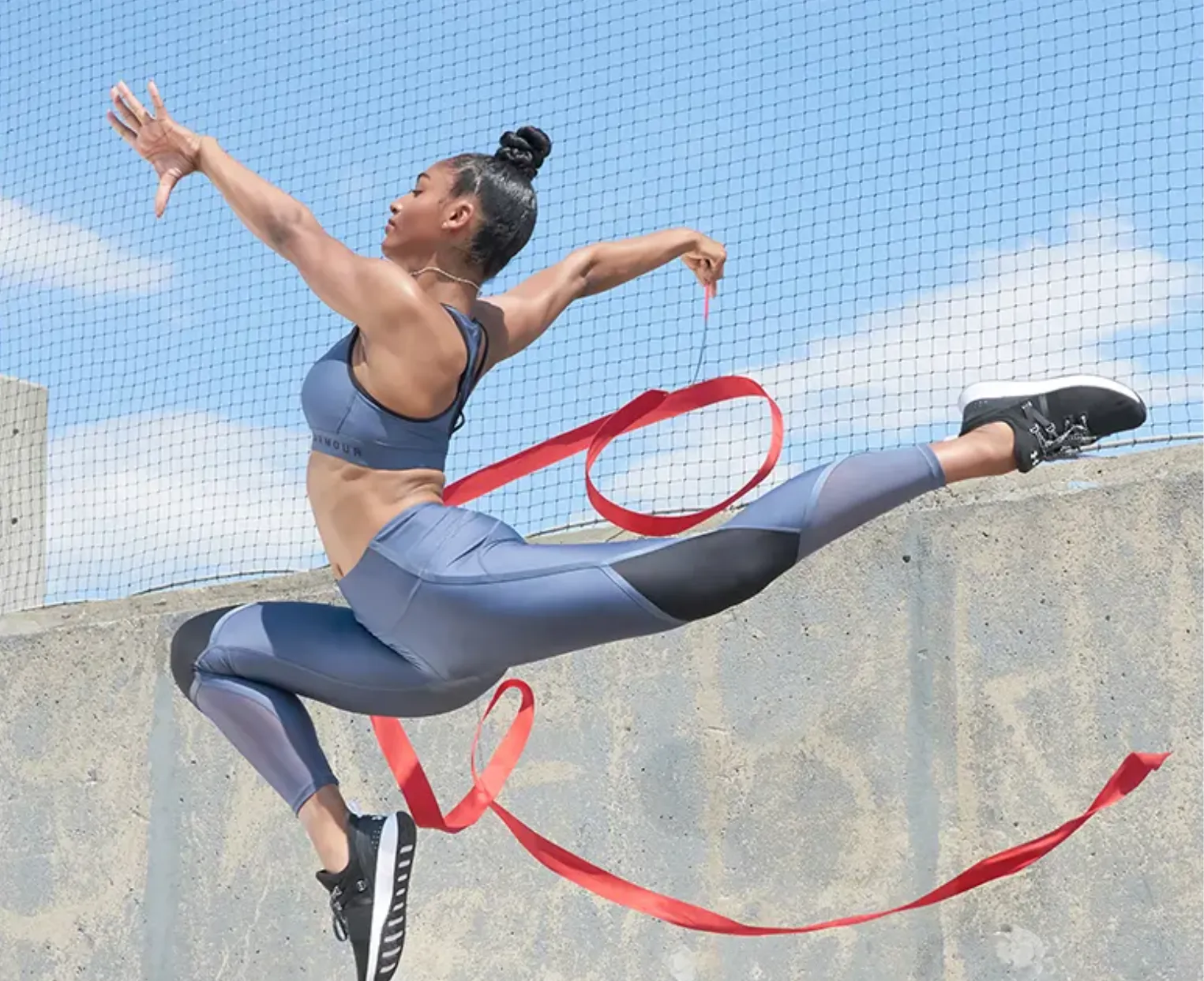The Fitness Routine Followed By Your Favourite Female Athletes
6 minuteRead

For most of us, rolling out of bed at 6 a.m. is work enough, much less going on a 40-minute run or powering through a one-on-one training session at that hour. But for three young athletes, the early-morning grind is the foundation of their success. Goalkeeper Janine Gordon, gymnast Nastasya Generalova, and tennis wunderkind Sophia Weiland are primed for bright futures in their fields, and nothing is going to stand in their way — especially not the snooze button.
Gordon says, "I just don't think about it." "I won't want to do the workout if I think about it, but if I just shut my brain off, I'll do it." Morning sweat sessions are meant to get the work out of the way for Gordon; for Generalova and Weiland, it's just the start of a long day of training.
We followed these three young sports stars as they went about their workout routines. Here, each girl discusses what it takes, both mentally and physically, to pursue greatness while the rest of the world sleeps.
Janine Gordon, Soccer

Source: refinery
Janine Gordon, 22, discovered quickly that playing college soccer was not for the faint of heart. "My first year... My shin splints were so bad that they turned into stress fractures. If one of us didn't pass our fitness routine test during pre-season, we'd all have to run the field 20 times." To beat the South Florida heat, Gordon and her teammates had to report to the school gym at 6 a.m. for weightlifting. During pre-season, they'd practise twice a day, once in the morning and again at 8 p.m. Aside from the physical, there were restrictions in place to ensure they were operating at full capacity on game day. "There used to be a 48-hour rule," she explains. "No [partying] for 48 hours before a game, and we had a curfew of 10 p.m. the night before. If anyone broke the rule, coach would tell them, 'If you want to fly with the owls at night, you better be able to soar with the eagles in the morning.'"
Gordon recently graduated from college and is preparing to take the LSAT, which has altered her training routine, but her motivation remains as strong as ever as tryouts for a professional women's soccer league approach. "I've always been persistent and held myself accountable," she says of her approach to the transition from college to the real world. "My main concern was that I wouldn't have that family structure anymore."
Gordon is still committed to staying in fighting shape despite the lack of a built-in network. "I despise running. I've never done it, "She describes her search for a heart-rate-raising substitute. So she comes to class five days a week for cardio, kickboxing, and weightlifting rotation. "I like it because it still has a team mentality," she says. "The trainers are constantly pushing everyone, which is something I'm used to. They push me even harder because they know I'm an athlete."
It took some getting used to, but Gordon is grateful for the mental toughness she learned in college. "It was all about survival," she admits. "The only way to get through it was to stop thinking about it and just do it." This mindset has now influenced other aspects of her life. "My coach used to say, 'Find a way,'" Gordon says, explaining that when she faces adversity or feels she can't do something, she remembers this mantra. "'Shake it off,' I tell myself. You must find a way.'"
Sophia Weiland, Tennis

Source: refinery
"I've always been very disciplined," says Sophia Weiland, 16, who has played tennis since she was five years old. "From the age of eight, I would get up at 5:30 a.m. to play tennis for an hour and a half before school." Monday through Friday, the teen tennis champion gets up at 6 a.m. and goes for a 40-minute run. She then attends to her schoolwork before heading to her tennis academy and working out for another hour. Then two hours of tennis, a lunch break, more schoolwork, and another hour and a half on the court. She works on her footwork and agility, sprints, and quick movements there. Even on weekends, she does "light fitness," which consists of 45 minutes of bodyweight exercises, core work, and light weightlifting.
Weiland's motivation is internal, despite the fact that she is being recognised as an all-star up-and-comer in the sport. "I feel a lot better if I do something healthy on my own rather than having my coach tell me to show up at 9 a.m. and train for two hours. I get a lot of satisfaction from knowing that I got up and did the workout on my own."
But the work doesn’t come without compromises. "It’s tough when I see everyone else having fun," she says. "Some of my friends who don’t play sports might go out and have a sleepover, and I have to go home. Or I leave the sleepover at 6 a.m. I still do normal teenage things, but I don’t have as much time." Even still, she says she's grateful for the experience, citing opportunities to travel and learn about different cultures.
When she isn't travelling the world or taking shots on the court, Weiland is mentoring young girls, an idea she came up with while volunteering at a local garden when she was 13 years old. "That's when I realised I wanted to give back to the community," she explains. "I wanted to share my passion for tennis with the girls who don't have the opportunity to train, who don't have coaches or parents to take them to practise." As a result, she founded Girls Empowering Girls, which this summer hosted clinics for 20 young people through sponsorship and volunteer academies.
But, despite her satellite projects and interests, Weiland's top priority right now is school so that she can play tennis at her dream college. What happens next? A career in the pros sounds super appealing.
Nastasya Generalova, Gymnastics

Source: refinery
"There really isn't an off-season for gymnastics," says Nastasya Generalova, the nation's third-ranked gymnast. "Maybe I can take two weeks off?" Generalova began gymnastics when she was four years old and continued to pursue it with the encouragement of her Russian mother. "Gymnastics is extremely popular in Europe, particularly in Russia," she explains. "[My mother] wanted me to participate in a sport that was feminine and elegant, as well as something that was closely related to my heritage."
The long days, however, have paid off: Generalova has been a member of the national team for the past seven years. She has won more medals than one can count in her 15-year career. She's competed on every continent except Africa, and she's travelled alone to Europe since she was 11 years old. And, while she claims to be proud, this kind of life does not come without costs.
"I don't have much of a social life," she admits. "I never attended birthday parties or socialised with my friends... I didn't celebrate my birthday; that happens every year because I'm either at practice or a tournament. Prom was my first party in my entire life."
While trophies, rankings, and accolades are nice recognition for all of Generalova's hard work and sacrifice, she also says she has another goal in mind. "I want to be remembered as the gymnast of colour who paved the way for other gymnasts," she says. "There was no one I could look up to when I first started out. The majority of rhythmic gymnasts are tall and slim, and the sport is dominated by white and Asian athletes. When you're on the carpet and no one else looks like you, it can be difficult. It's an honour to be someone who young girls can look up to."
Write, Record and Answer! Consume Unlimited Content! All you need to do is sign in and its absolutely free!
Continue with one click!!By signing up, you agree to our Terms and Conditions and Privacy Policy.










